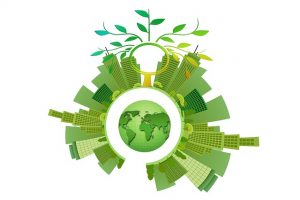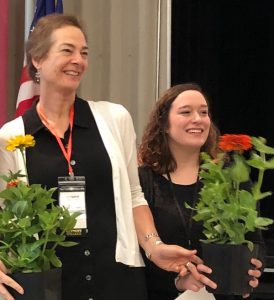Utilizing various concepts to Airbnb, including knowledge management, learning organization, transformational leadership and Kotter’s eight steps for leading and managing complex change.
Faculty sponsor: Paul Disney

Utilizing various concepts to Airbnb, including knowledge management, learning organization, transformational leadership and Kotter’s eight steps for leading and managing complex change.
Faculty sponsor: Paul Disney
Dr. Diane Baxter
Stepping into the Light: Thoughts on Performance Anxiety
This presentation will focus on how we can do our best under duress.
Dr. Annie Ittner
Learning How to Read in Another Language
How can the arts and sciences help make sense of learning to read in another language? The school communities in our country are increasingly multilingual. Multilingualism is an asset to the learning environments in classrooms. Neuroscience tells us that the bilingual brain has greater cognitive flexibility. Understanding this cognitive flexibility can help teachers develop a classroom environment where students learning how to read can capitalize on their strengths. One way teachers support this is through exploring the arts of literature, writing, and storytelling.
Dr. Gay Timken
Play – art, science or…?
“In our play we reveal what kind of people we are.” Ovid, Roman poet (427-347 BC)What is play? Why do we play? Is play art or science, or neither? How does play change with age, and should it? “We don’t stop playing because we grow old, we grow old because we stop playing” Ben Franklin
Dr. Dan McCarthy
What illusions can tell us about perception
If there is one thing that can be learned from the study of visual perception, it is that we do not see the world as it is, but rather construct our reality based available cues in the environment. Seeing the world appears so effortless that we often take for granted how complicated vision actually is. In certain cases, we misperceive the world, and sometimes we perceive things that do not physically exist outside our minds. Such visual illusions that ‘break the brain’ can provide very informative insight into the underlying neural mechanisms that give rise to our visual experience. Here, I will show several compelling examples of visual illusions and discuss how we can learn about the brain from instances in which it fails to arrive at the ‘right’ answer.
Dr. Leanne Merrill
It’s Turtles All the Way Down: Self-Similarity in Mathematics, Music, and Life
Self-similarity originated as a mathematical term, but it describes an idea that pervades many scientific and artistic realms. Mathematical fractals, musical frequencies, and recursive computer algorithms all exhibit self-similarity in various forms. What can we learn from the study of self-similarity across disciplines? This talk seeks to explore connections across disciplines through the lens of self-similar structures.
If you are thinking about presenting with video at AES, please remember to check if the video has good captions. Good captions are not just okay; good captions are not accurate 80% of the time; good captions are accurate 98-100% of the time.
Thus, if you are considering using a video, be sure that you watch the whole video with the captions on. Make sure that you read the captions to ensure their accuracy.
If you plan to use video which either does not have captions or has poor captions, be sure to request that ODS captions your video. ODS usually needs at least two weeks to caption a video.
Here is the presentation on Google Slides used to highlight the key changes at AES this year. Please note that the slides have limited information; more details are given/explained in person.
Glaciers have been a crucial element to the health of Oregon’s rivers and streams and for humans. The increase in global and local temperatures has caused most glaciers in the Pacific Northwest to melt and shrink, reducing stream output and increasing sediment deposition. How will melting glaciers affect life in the Pacific Northwest if glaciers continue to retreat at the rate they are? It is known that melting glaciers drop sediment that had been previously frozen in the ice, and that glacial melt is important for rivers and streams late in the summer when there is less rainfall. However, what is less clear is how these changes in glacial volumes and melting cycles will affect human life. In order to find this out, a variety of research papers on glacial hydrology, river hydrology and sedimentology were used to piece together probable outcomes and scenarios that could and have come from retreating glaciers. Since nothing can be 100 percent certain in this project, and in the research papers, there is some speculation and debate as to what the future may hold for glaciers. One thing that is for certain is that change is coming, and preparations need to be made.
Mentor: Melinda Shimizu
The choreography of Kurt Jooss should not have been categorized as Audstrucktantz (Expressionist Dance) but rather under the German art movement De Neue Sachlichkeit (The New Objectivity), especially when comparing his work, The Green Table to the work of De Neue Sachlichkeit artist George Grosz and his painting The Eclipse of the Sun.
Mentor: Sharon Obers
Students from BA 474 Business Leadership conducted a strategic leadership analysis of the technology industry to determine the best leadership principles, qualities, skills, traits, etc. for senior leaders to be effective in this highly competitive and rapidly changing industry. Their leadership analysis included senior leaders from Airbnb, Microsoft, HP, and Uber.
Mentor: Paul Disney
If you make a mistake when you, as a student, register for AES, or if you, as a session chair, make a mistake when you request a session, don’t worry!
All AES registration and session request forms can be edited up until the due date! That’s right, you can go back, make changes, and adjust details as many times as you need–up until the deadline. After the deadline, no changes can be made.

Folks,
A colleague just forwarded an email about the Oregon Applied Sustainability Experience (OASE) to me. Here is the relevant information (quote from the email). I do not have any further information. If you have any questions, please review the contact information detailed below.
Good luck!
****
OASE offering paid internships for its 10-week program this summer. Internships are open to any student in Oregon who are juniors or seniors or have obtained graduate or advanced undergraduate training in business, economics, engineering, environmental science, green chemistry, physical science, or sustainability science. Projects address pollution prevention solutions for Oregon businesses and pair students with an industry mentor to gain hands-on experience in project development and management, as well as science communication to interdisciplinary audiences. Project topics include energy or water audits, toxics reduction, green chemistry, and life cycle assessment.
Application materials include a brief résumé, transcripts, and short statement expressing your interest (how you might benefit from the opportunity and how your skills align with the project(s) of interest). More details about application requirements and the available positions are provided on our website:
https://seagrant.oregonstate.edu/fellowships/oregon-applied-sustainability-experience
For full consideration, submit your application by April 12. Applicants will be matched to the opportunities based on experience and interest areas. Program dates are June 17 through August 30, 2019; stipends and training will be provided to eligible students. Please contact Valerie Stephan-LeBeouf (stephan.valerie@deq.state.or.us) for more information
2019 OASE Host Businesses:

If you would have told me that I would present not once, but two times at Academic Excellence Showcase (AES) after transferring to Western Oregon University, I would have laughed in your face. After engaging in research on Dr. Cannon’s research team and conducting my own research with two of my peers for Dr. Manoogian’s class, I was presented with two fear-inducing opportunities. Due to my supportive professors, I took these opportunities to present my findings at AES head on with my peers. When the day came, though I was shaky, I spoke with clarity and pride on what I had produced. While I was out of my comfort zone, stepping out is what led me to a plethora of new opportunities. I was not only invited to speak at an event at President Fuller’s house on our research findings, I was able to use my newfound confidence in public speaking while presenting at the Gerontological Society of America’s annual meeting in Boston, MA. Without the encouragement from my brave peers and proud professors, I would still be in my comfort zone lacking my newfound experience with public speaking. I am now more inclined to speak in class, advocate in my work setting, and encourage my peers to take the opportunities we are given. Our campus offers a safe place for students to develop skills that will help them as they advance into the workforce. Luckily for me, these skills have allowed me to develop as an individual as well.
By Hannah Wehr
Hannah is a student in the Gerontology Program.